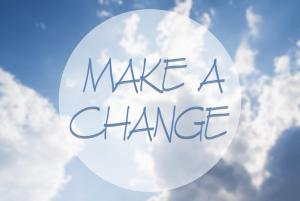Happy New Year! Aaah January… the time of year that we are inspired and excited for new beginnings, big changes, aaaannd the time of year where we hear and talk about New Year’s resolutions.
New Year’s resolutions can be a great concept, and usually extremely well intentioned. However, fast forward a few months and no one is talking about them anymore. If we see or hear anything about New Years resolutions anymore, it’s typically because people are talking about how they forgot about their resolutions, how there’s always next year, or how they don’t have time for the resolutions they had made in the midst of busy schedules. In fact, only 40% of people who make New Years Resolutions actually keep them.
So how do we make resolutions that we can actually keep all year?
First it is important to recognize that there are different levels or stages of change. Identifying which stage of change we are in determines what we need to do to effectively integrate the desired change and outcome we want.
Stage 1: We don’t think about the desired change on a regular basis. This can mean anything from losing weight, praying more, being more productive, etc. The change that would be beneficial for us to make is not on our mind in a pressing way.
What to do: First, it is helpful to learn more about it. What are the benefits of getting in shape, developing a stronger prayer life, or making the most out of every day (at work, at home, within the family). Second, make a list of about three reasons why making a change would be helpful and then make a list of approximately three reasons why the change is not yet being made.
Stage 2: We are thinking about making a change but have not developed a plan for how to do it.
What to do: Acknowledge the negative effects and ask, “Does my behavior align with my view of my self? Does my behavior fit with my idea of who I want to be?” In this stage is it helpful to seek support such as social supports, counseling, or support groups. Seeking supports is helpful for us to acknowledge hope for the future and for creating a successful change, but allows recognition of potential barriers that may arise. Supports and resources help us to overcome potential barriers while maintaining hope and continuing progress towards our desired outcomes.
Stage 3: We prepare to make a change within thirty days by utilizing a realistic plan and timeline.
What to do: Create a realistic schedule and timeline for how and when to achieve the goal. Utilize the resources and supports identified in stage 2 to stay on track.
Stage 4: We have taken action and made efforts to work towards our goal within the last six months, but we may have encountered a few barriers or set backs.
What to do: Commit to the change. This can be done by telling a friend or family member about our plans, writing down a statement of commitment, keeping reminders around our house, our office, or on our phone, or whatever strategy we feel will help us stay accountable to making a change. It is also helpful in this stage to change our environment in ways that will help us overcome potential barriers. Replace candy or junk food with healthy snacks, identify a quiet place in our homes where we can focus on prayer without distractions, create a daily schedule to maximize productivity. Finally, create small rewards for achieving the desired behaviors on a daily or weekly basis.
Stage 5: We have practiced our new habit or behavior in place of old habits consistently over the past six months.
What to do: Celebrate success! To maintain this change in our lives, the same strategies discussed in stage 4 are applicable.
Once we have identified which stage of change we are in and what to do from there, it is important to create small, attainable goals that will help us to achieve our desired change. Simply working towards the desired change by focusing on the larger, main goal is not an effective approach to successfully establishing new behaviors. If this is our approach we are, as the phrase goes, “biting off more than we can chew.”
In any endeavor it is best to create small, attainable, and measurable goals such as, “Within two weeks I will replace the junk food in my house with healthy snacks,” or “I will pray for five minutes every morning before I start my day.” These goals act as stepping stones that lead us on the path towards our desired change and allow us to hold on to inspiration and hope through the celebration of small successes.
If you are looking to increase your resources and support network through counseling or spiritual direction, we’re here to help. Visit us at CatholicCounselors.com or give us a call at 740-266-6461.










